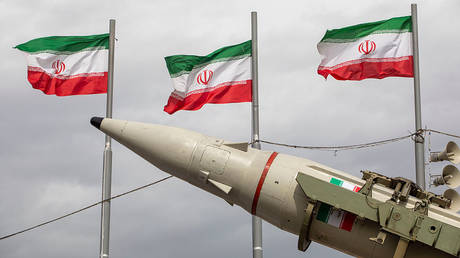
The Australian FM argues the AUKUS pact was the best way of avoiding conflict with China
A war over Taiwan would be “catastrophic for all” and there would be “no real winners,” Australian Foreign Minister Penny Wong said on Monday, adding that Canberra’s priority was to lower the temperature between the US and China.
Speaking at the National Press Club, Wong slammed the “frenzied” speculation – referring to the recent ‘Red Alert’ series in two major newspapers – about a Taiwan conflict, calling it “the most dangerous of parlor games.” The Age and the Sydney Morning Herald had reported last month that China might “invade” the island within three years.
Australia is against any unilateral change to the status quo, as well as threats of force or coercion, Wong said. Canberra doesn’t want to see the great-power competition between the US and China “careen into conflict,” she added, noting that the region faced “the most confronting circumstances in decades.”
The Australian government’s job was to “lower the heat on any potential conflict, while increasing pressure on others to do the same,” Wong told reporters. “That may not sell as many newspapers today, but it will help you to sell them for a lot longer.”
Wong defended the recent AUKUS pact with the US and the UK, which saw Australia break a contract for conventional submarines with France in favor of buying nuclear-powered US and UK boats. China has criticized the move as a dangerous escalation.
“By having strong defense capabilities of our own, and by working with partners investing in their own capabilities, we change the calculus for any potential aggressor,” the foreign minister said.
The government of current Prime Minister Anthony Albanese was pursuing self-reliance instead of wanting to attach itself to a hegemon, Wong said, in what was widely perceived as a reference to her prominent critic and fellow Labor member Paul Keating.
In a statement on Monday, Keating described a confrontation between the US and China as a standoff between “a super-state resident in continental Asia and an itinerant naval power seeking to maintain primacy,” arguing the divide between them resembled the rigid bloc confrontation in 1914 Europe.
Australia’s major foreign policy task was to “soften that rigidity” by encouraging the two powers to find common ground, Keating argued. “Nothing Penny Wong said today, on Australia’s behalf, adds one iota of substance to that urgent task.”
“Never before has a Labor government been so bereft of policy or policy ambition,” added Keating, who served as prime minister from 1991 to 1996.




